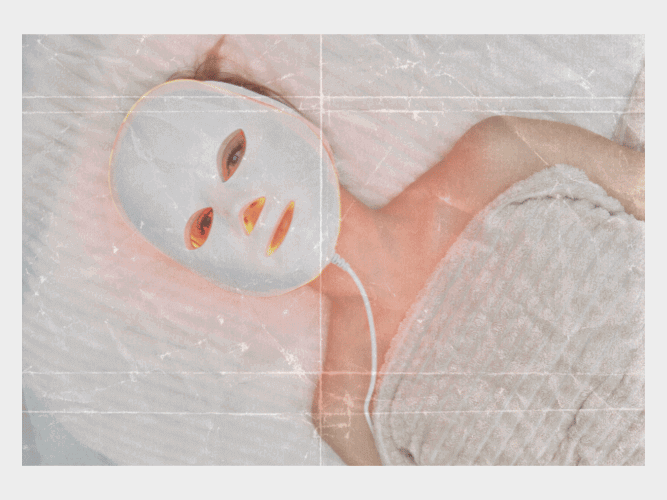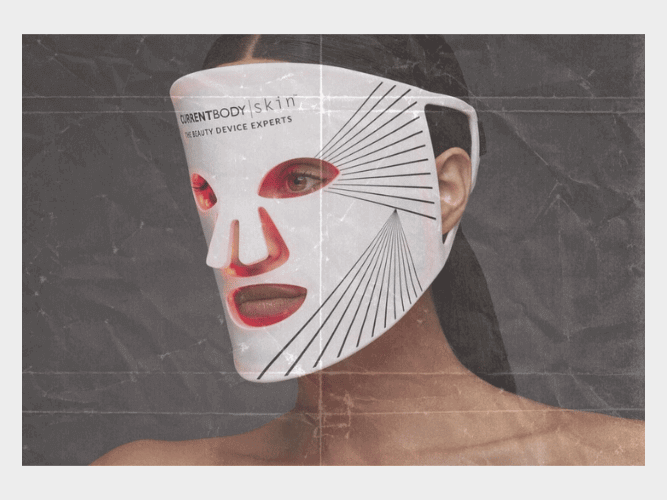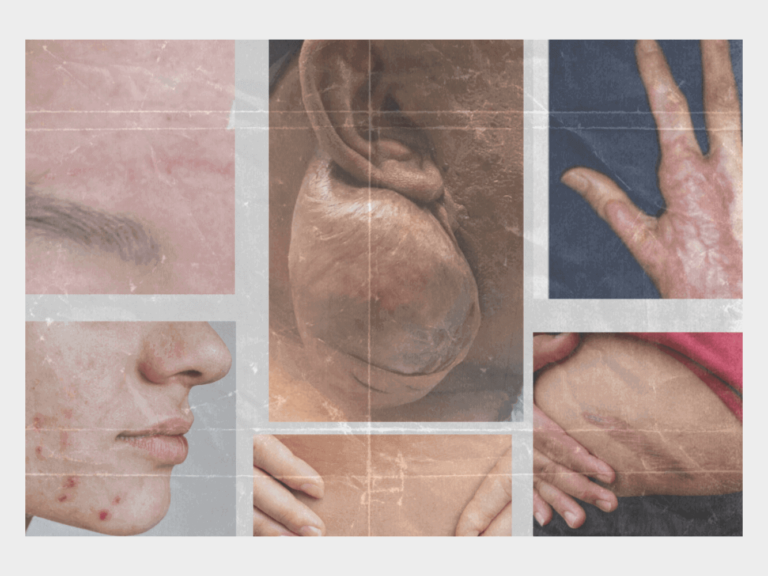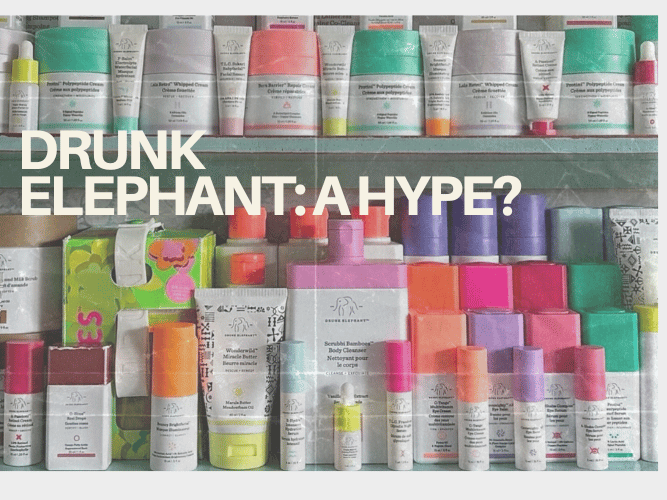LED Light Therapy Trend!
LED light therapy has become wildly popular recently, and for good reason—it actually works. Just take a look at Instagram, where celebs like Victoria Beckham, Suki Waterhouse ,Julia Roberts, Jessica Alba, and the Kardashians have made LED masks a staple in their skincare routines. Well, while these masks are everywhere, it’s essential to consider LED mask safety before diving in.

When it comes to LED mask safety, there are some concerns worth considering. While these masks are often praised for reducing signs of aging and enhancing skin clarity, new research suggests they may not be suitable—or even safe—for everyone. In fact, for certain individuals, LED masks might not only fail to deliver results but could actually worsen issues like hyperpigmentation.
what’s LED light therapy ?
So, what’s LED light therapy all about? It involves exposing the skin to different wavelengths of light, like red, blue, and near-infrared, which penetrate below the surface. Unlike harmful UV rays, these lights can benefit the skin, with each color targeting specific skin concerns.
Benefits of LED light therapy on Face?
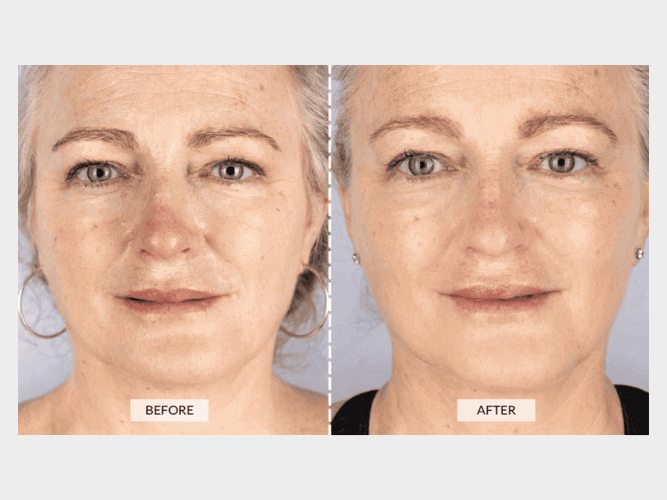
- Reduces Fine Lines and Wrinkles: Certain wavelengths, like red light, help boost collagen production, which can smooth out fine lines and improve skin elasticity.
- Clears Acne and Blemishes: Blue light targets bacteria on the skin, which can help reduce acne and prevent future breakouts.
- Evens Out Skin Tone: LED therapy can minimize pigmentation issues, leading to a more balanced and radiant complexion.
- Soothes Inflammation: LED light can help reduce redness and swelling, making it a useful treatment for irritated or sensitive skin.
- Speeds Up Healing: Near-infrared light promotes cell regeneration, helping the skin recover faster from cuts, scars, and other minor injuries.
- Improves Overall Skin Texture: Regular LED treatments can make skin feel smoother and look more vibrant over time.
Why LED Masks Aren’t Safe for Everyone
LED masks use visible light therapy, usually in red or blue wavelengths, designed to penetrate the skin. Despite their growing popularity, LED mask side effects can impact certain people with specific skin types, conditions, or who are on particular medications.
1. LED Masks and Hyperpigmentation: A Risk for Darker Skin Tones
Recent studies suggest that LED masks may worsen hyperpigmentation, particularly for people with darker skin tones. This is because blue light, which is often emitted by LED masks, can aggravate discoloration, making LED mask risks greater for this group.
- Blue Light and Hyperpigmentation: Research indicates that blue light exposure can lead to pigmentation issues in people with melanin-rich skin, worsening existing spots and patches.
- Hyperpigmentation and LED Masks: Those who are already managing hyperpigmentation may experience more prominent discoloration when using an LED mask, especially with blue light exposure.
In short, if you have darker skin and are struggling with hyperpigmentation, it’s safer to avoid LED masks. Consult a dermatologist for effective treatments that don’t involve visible light exposure.
2. Photosensitive Medications and LED Masks: A Dangerous Combination
Some medications make your skin highly sensitive to light, and these are known as photosensitive medications. If you’re on medications that increase skin sensitivity, LED masks may not be a safe option.
- Common medications that cause photosensitivity include:
- Accutane and other retinoids
- Antibiotics like doxycycline
- Blood pressure medications
- Cholesterol-lowering drugs
If you’re taking any of these, exposure to LED light can cause reactions ranging from irritation to severe burns. It’s critical to check with your doctor if you’re on any medication that could heighten your sensitivity to light before trying LED therapy. The potential LED mask risks are too high if you fall within this group.
3. Medical Conditions and LED Mask Sensitivity
Certain medical conditions also make skin sensitive to light, creating additional LED mask contraindications. People with the following conditions should avoid LED masks:
- Autoimmune Diseases: Conditions like lupus can make skin sensitive, and LED light can trigger flares or adverse reactions.
- History of Skin Cancer: If you have a history of skin cancer, including basal cell carcinoma or actinic keratosis, avoid LED masks. Light exposure can increase risks.
- Epilepsy: Light-sensitive epilepsy can be triggered by LED lights, causing seizures.
- Pregnancy:While there’s no solid proof that LED light therapy is harmful for pregnant women, the truth is that we just don’t have enough long-term studies to be 100% sure. That’s why many doctors say it’s better to play it safe. Plus, pregnancy hormones can make your skin way more sensitive, which means LED therapy could have unexpected effects.
For individuals with these conditions, the potential side effects of using an LED mask may outweigh any benefits. LED mask safety is essential, and if you’re concerned about how it might affect your skin, it’s a good idea to consult a board-certified dermatologist. They can guide you toward safer alternatives that won’t compromise your skin’s health.
LED Mask Safety: Quick Recap of Who Should Avoid LED Masks
- People with darker skin tones who are struggling with hyperpigmentation.
- Those on photosensitive medications like Accutane, antibiotics, or blood pressure medications.
- Individuals with medical conditions like lupus, a history of skin cancer, or epilepsy.
- Pregnant Women.
LED Masks Safety for Everyone Else?
If you don’t fall within the above groups, LED masks can be safe and may help improve your skin’s appearance if used consistently. However, it’s essential to use LED masks as directed and consult with a dermatologist to ensure they’re suitable for your skin type and concerns.
Benefits of LED face mask
- Reduces Fine Lines and Wrinkles: Certain wavelengths, like red light, help boost collagen production, which can smooth out fine lines and improve skin elasticity.
- Clears Acne and Blemishes: Blue light targets bacteria on the skin, which can help reduce acne and prevent future breakouts.
- Evens Out Skin Tone: LED therapy can minimize pigmentation issues, leading to a more balanced and radiant complexion.
- Soothes Inflammation: LED light can help reduce redness and swelling, making it a useful treatment for irritated or sensitive skin.
- Speeds Up Healing: Near-infrared light promotes cell regeneration, helping the skin recover faster from cuts, scars, and other minor injuries.
- Improves Overall Skin Texture: Regular LED treatments can make skin feel smoother and look more vibrant over time.
Shop LED FACE Mask for Men
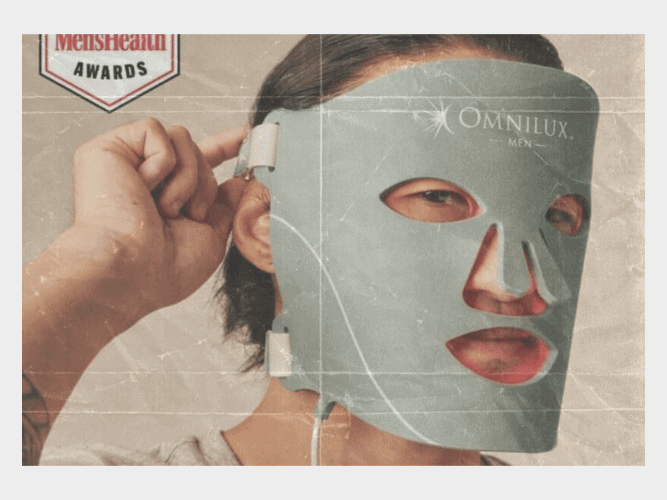
LED face Mask for men
Shop onAmazon HERE!
Shop LED Face Mask for Women!
Frequently Asked Questions (FAQs)
1. What if I’m using tretinoin, retinol, or hyaluronic acid?
Do not use these products before an LED mask. Instead, apply them afterward to avoid increasing skin sensitivity.
2. Can melanated skin with hyperpigmentation use a red LED mask?
All visible light, including red light, can potentially worsen hyperpigmentation in darker skin tones.
3. I heard green light is good for melasma. Should I try it?
I wouldn’t treat melasma with visible light. Instead, focus on effective skincare routines for hyperpigmentation.
4. Do you have LED mask brands you recommend?
Yes, the CurrentBody and Omnilux LED masks have garnered positive reviews for general use.
5. Would you recommend LED masks to those outside the high-risk groups?
Yes, LED masks can be effective for skin health if you don’t fall into one of the high-risk categories and use them consistently.
6. Can you use an LED mask after applying skincare?
No, it’s best to use the LED mask on clean skin first, then follow up with your skincare routine.
7. How often should I use an LED mask if it’s safe for me?
Typically, 2–3 times per week is recommended, but follow the specific instructions for your device.
8. Can I combine LED mask use with sunlight exposure?
Avoid additional sunlight exposure on days you use an LED mask, as this can increase skin sensitivity.
9. Are there alternative treatments for hyperpigmentation?
Yes, many alternatives don’t involve light exposure, including topical treatments like vitamin C and niacinamide.
10. Should I consult a dermatologist before starting LED mask therapy?
Absolutely, a dermatologist can help you decide if an LED mask is suitable for your unique skin needs.
